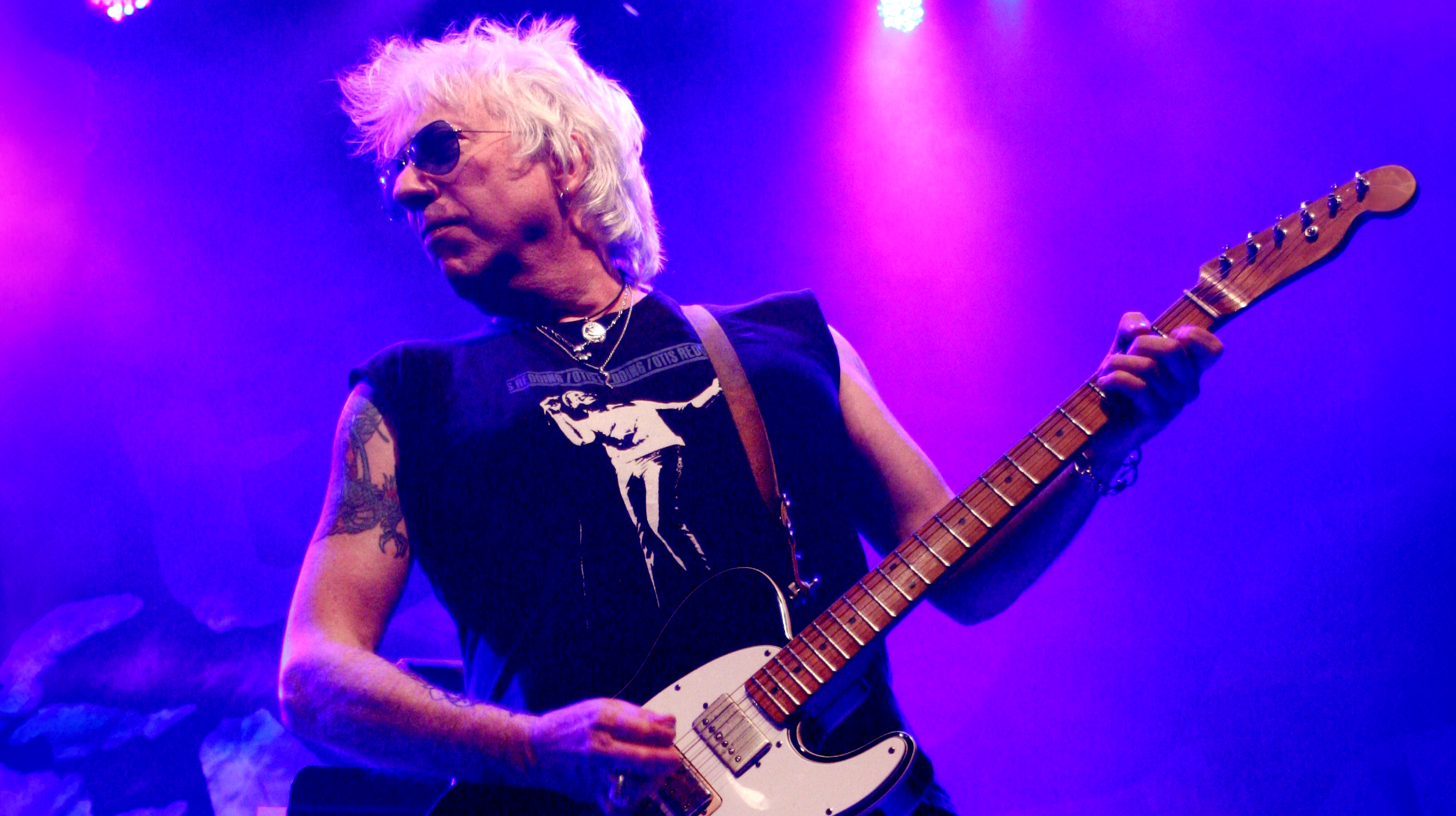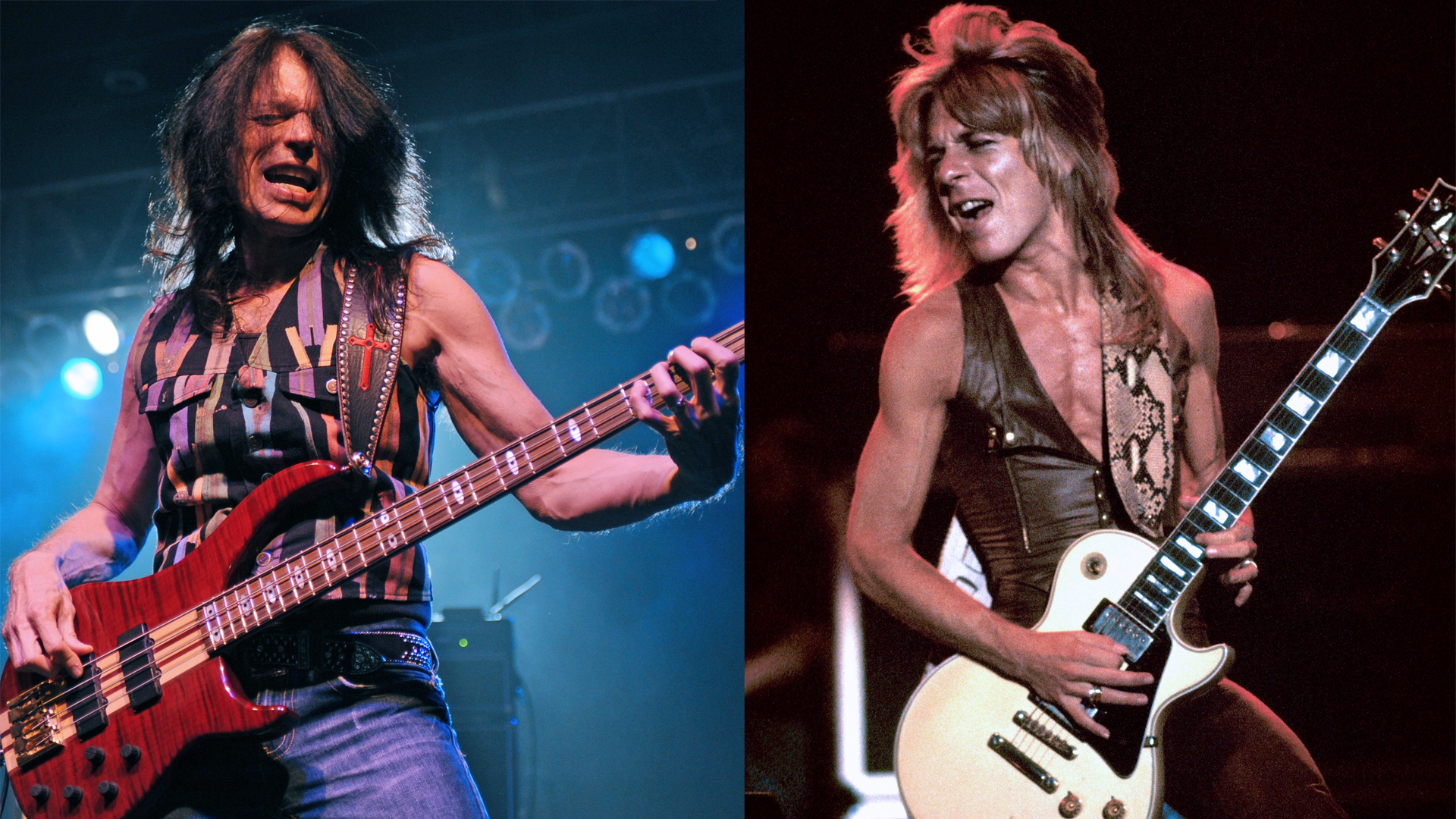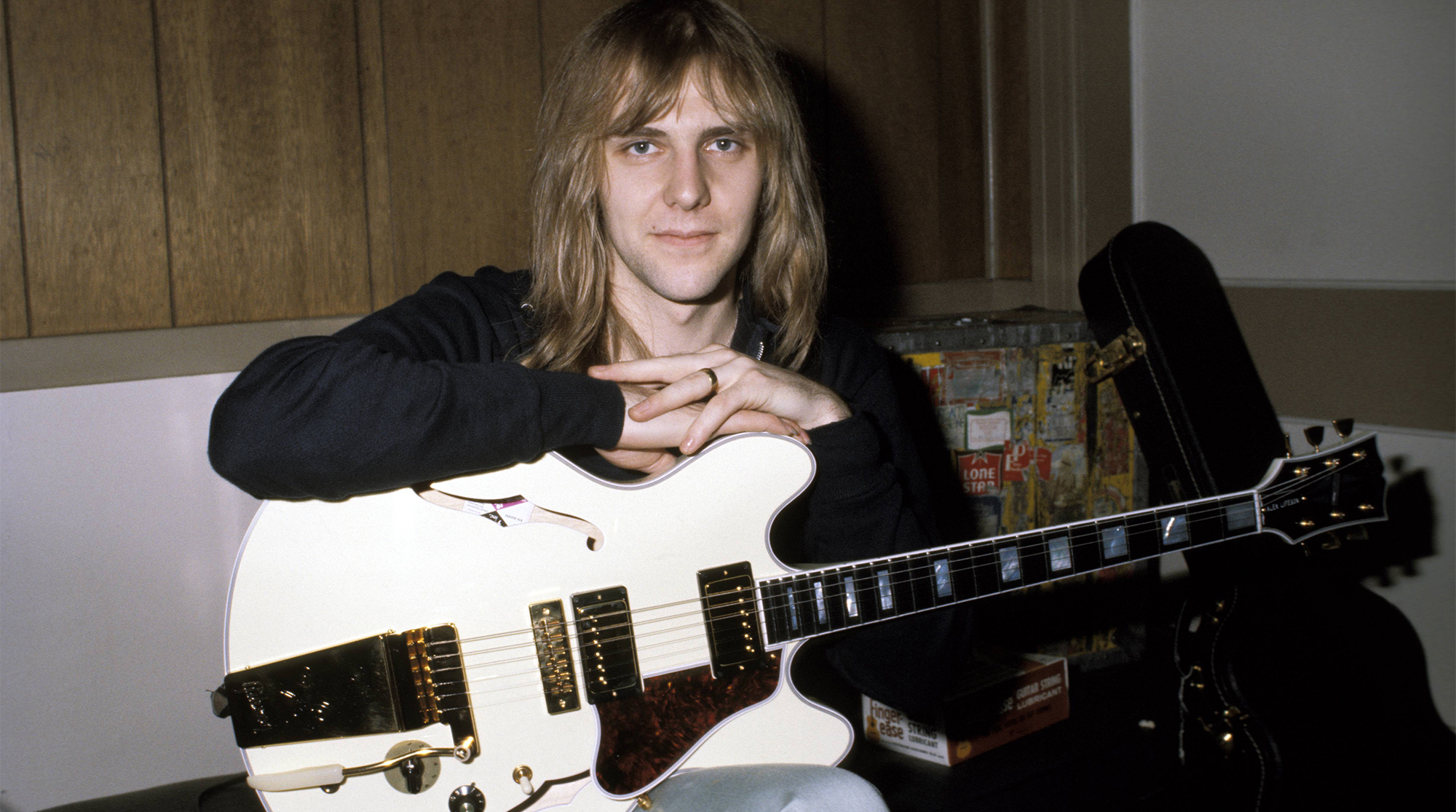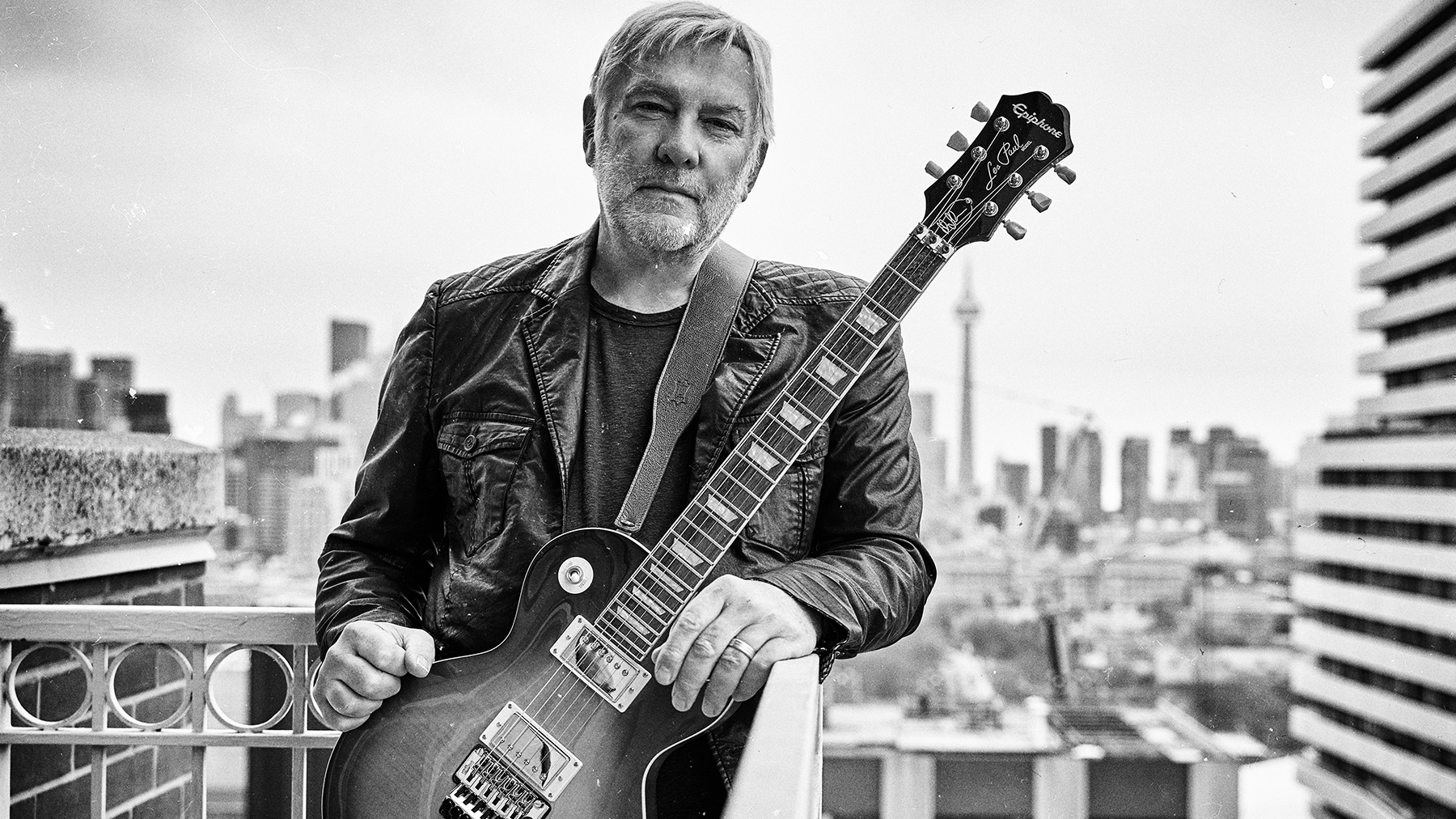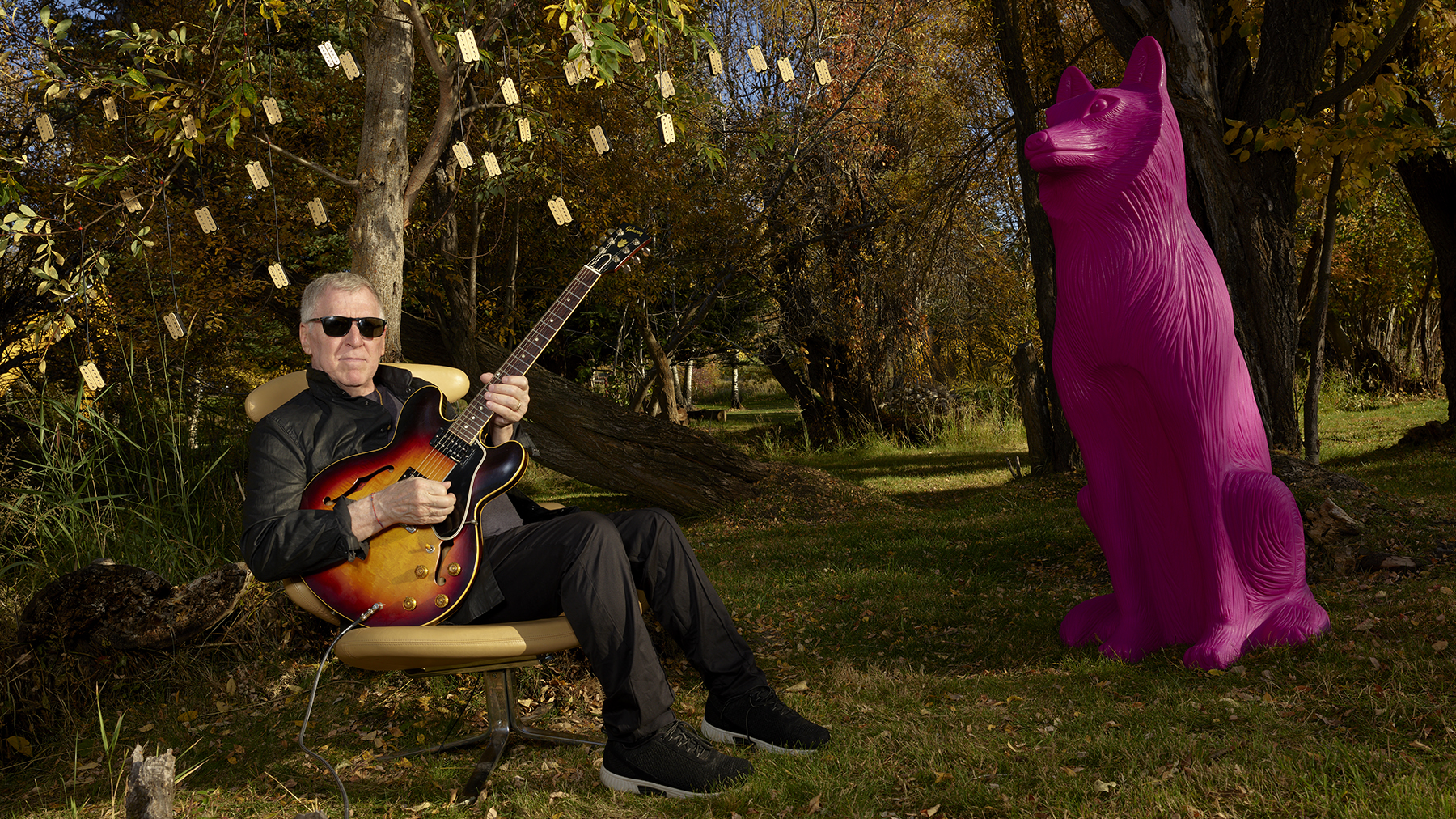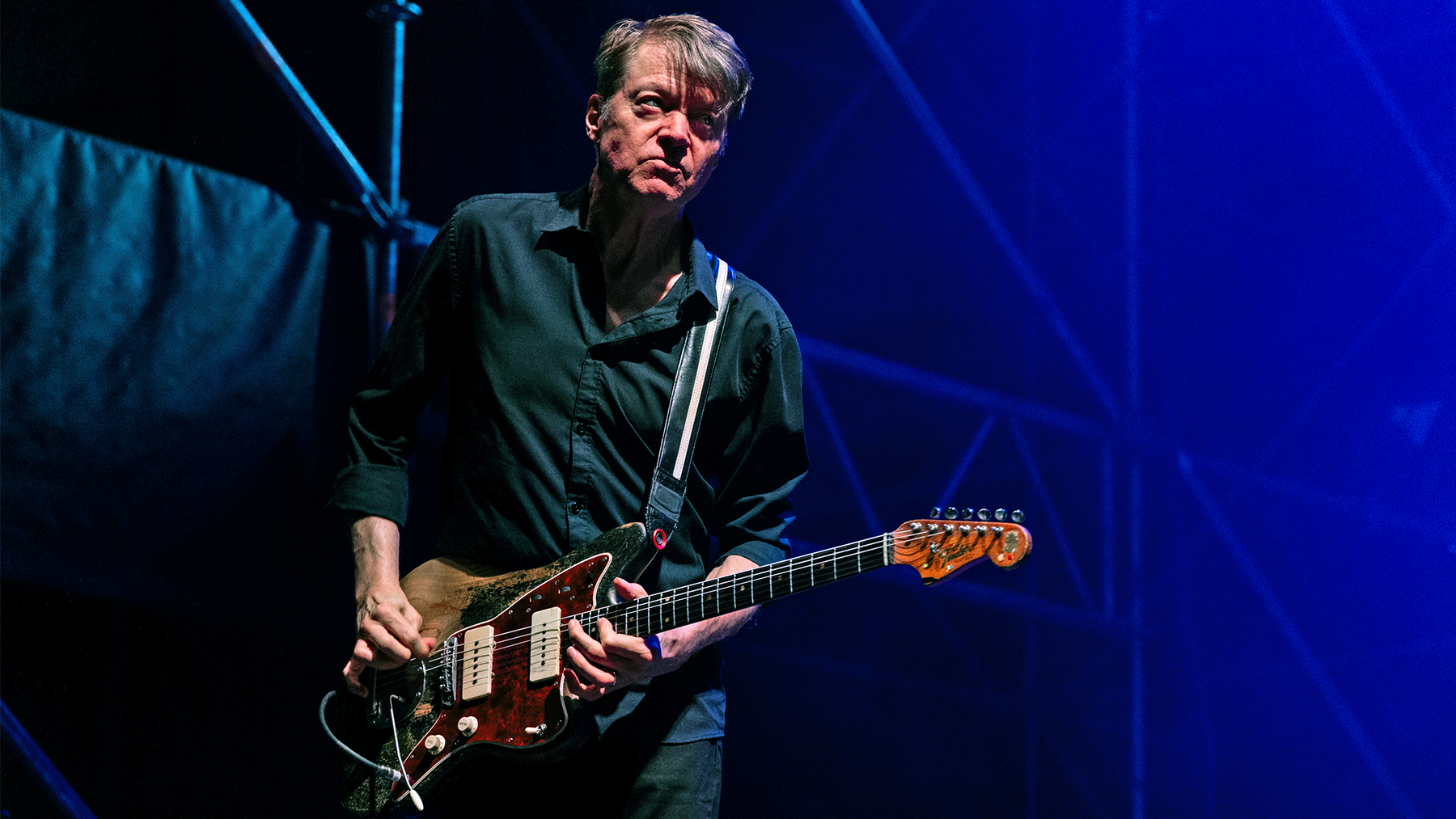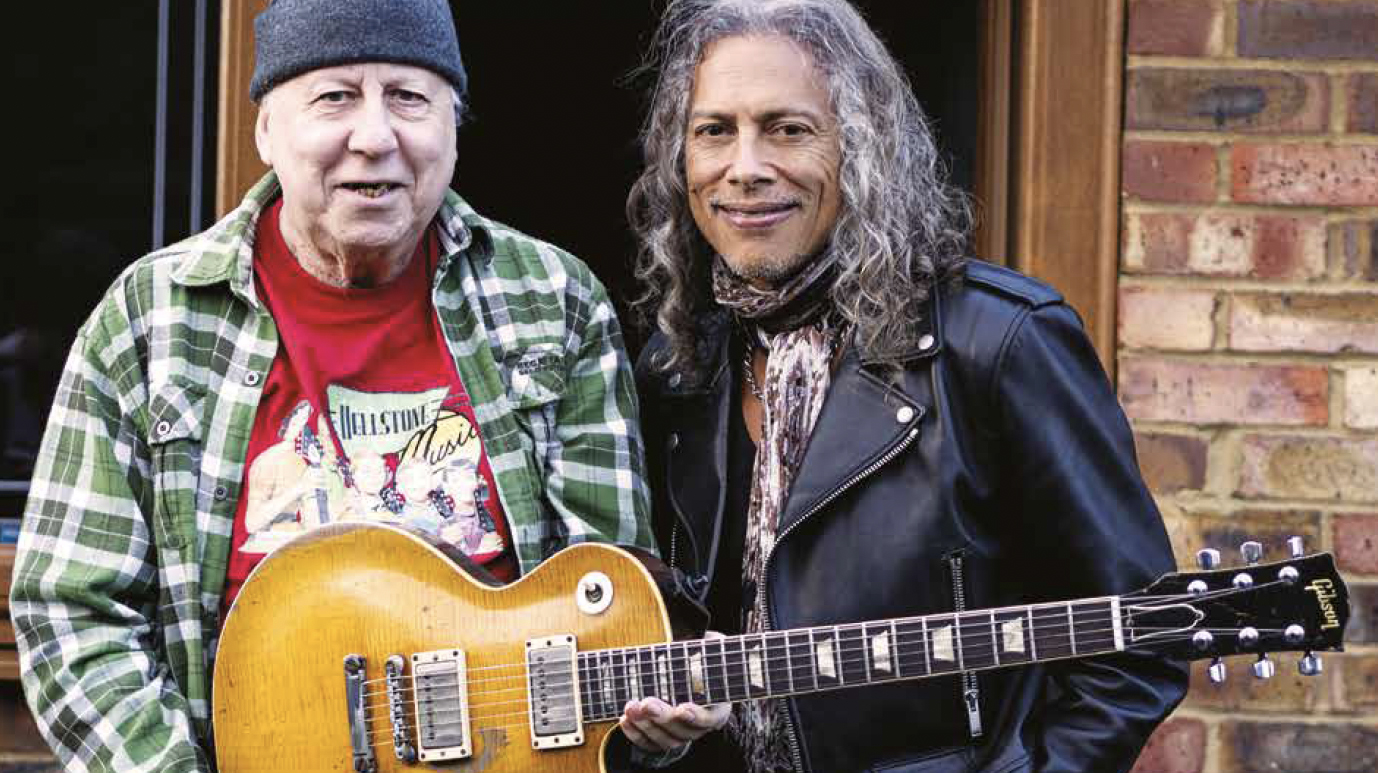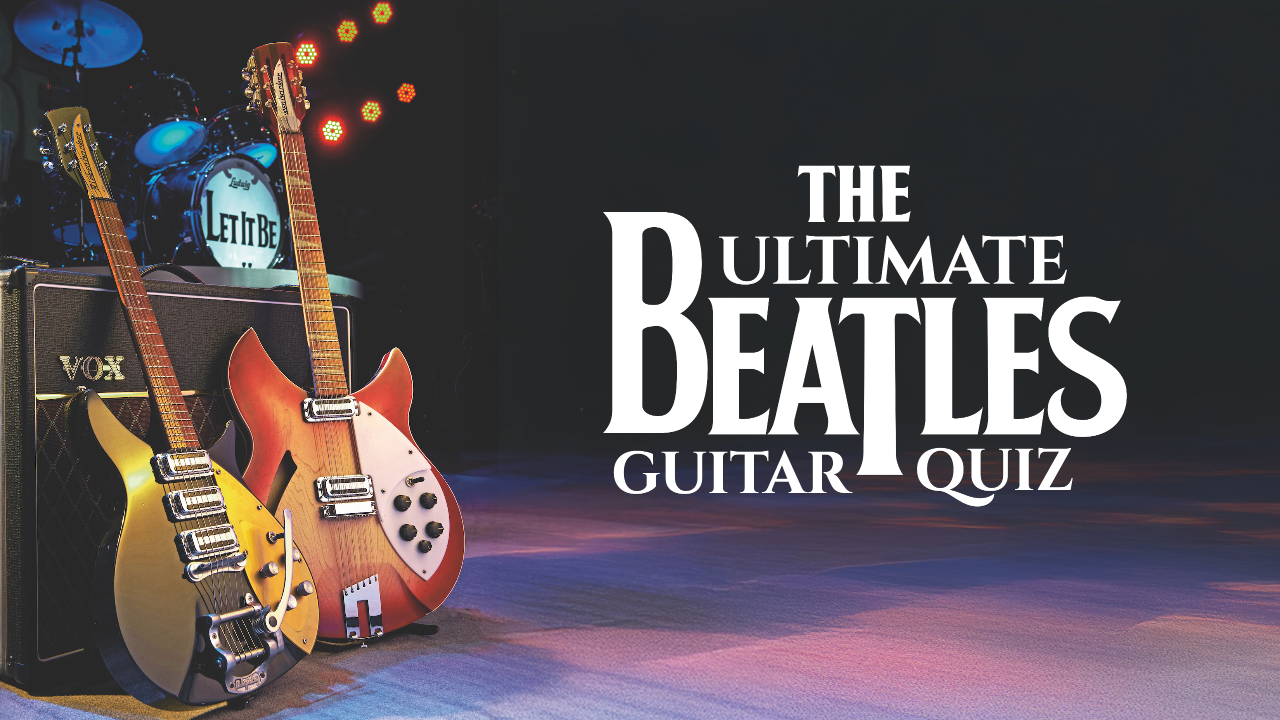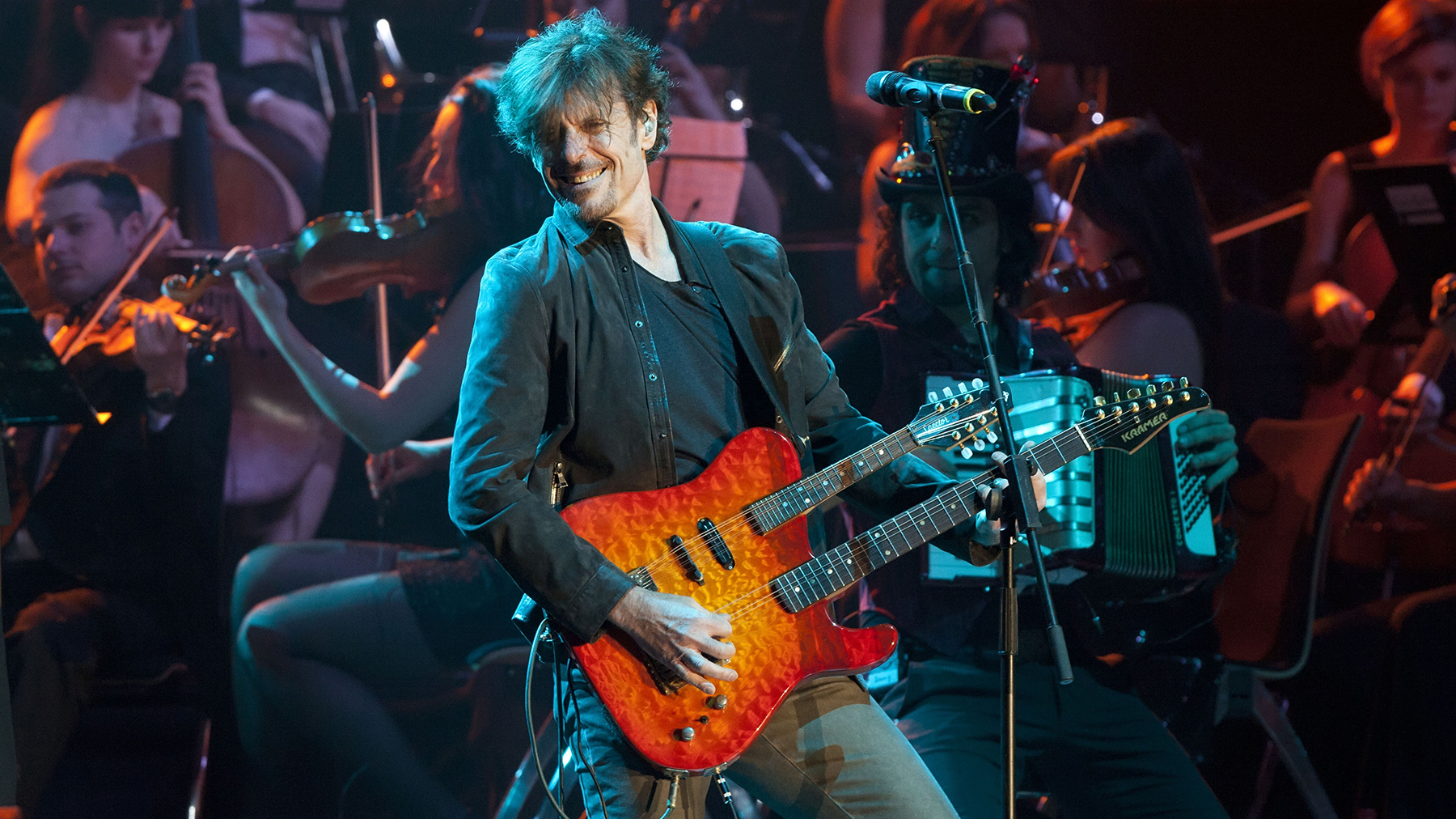"It's a steal, but since it’s the only one, who knows how it might appreciate?" What do you get when a car designer builds a guitar? Our intrepid guitar hound goes in search of his next six-string oddity
This custom, one-of-a-kind Jon Trickey Comet electric guitar takes its styling cues from cars and designs from 1950s American culture
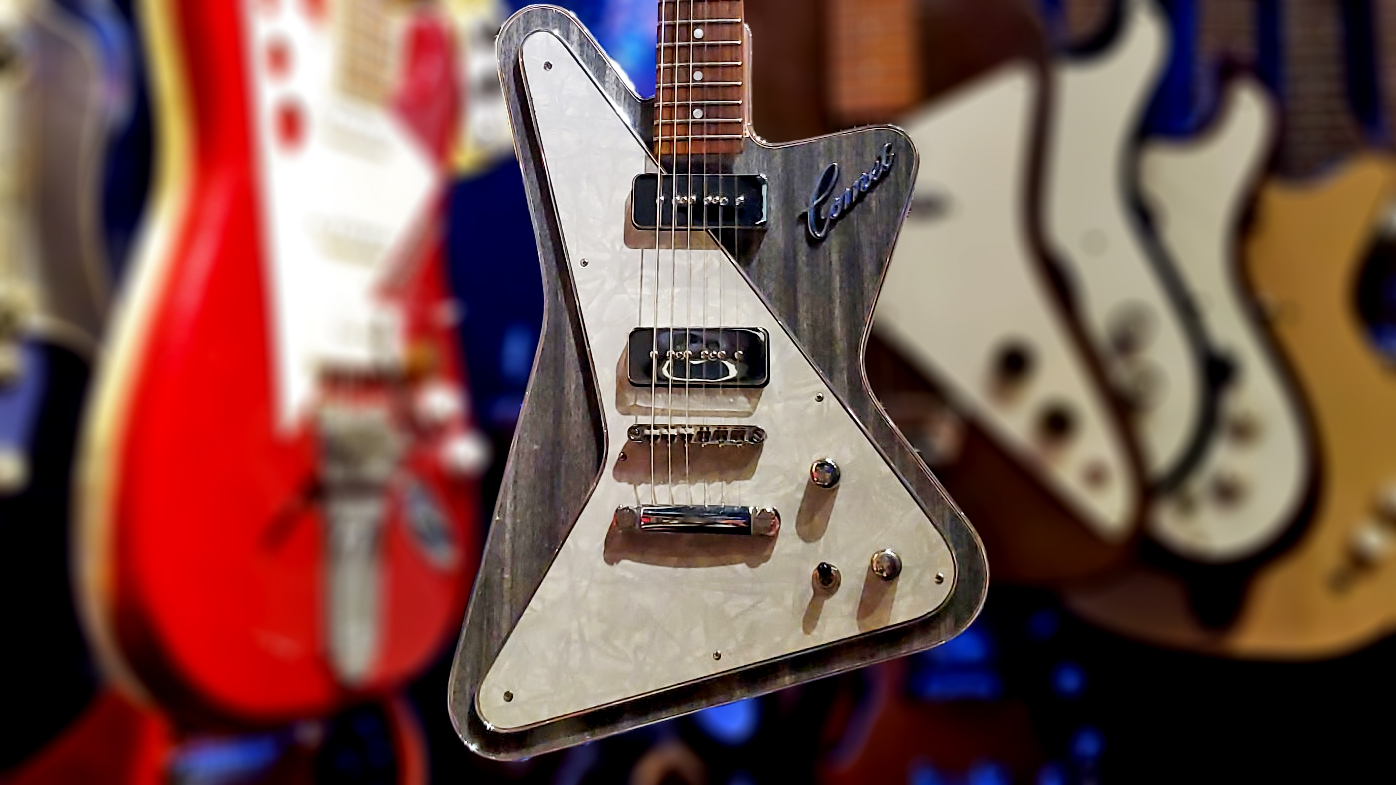
Maybe I was born too late. I love anything that hearkens back to the post-industrial designs of the 1950s, including Airstream trailers, two-tone cars, Formica dinette tables, and the sci-fi imaginings that stylishly brought us into the space age.
This electric guitar, handbuilt by Jon Trickey and dubbed the Comet, pulls all of those things together into one snazzy build, Daddy-o! Trickey, a car designer, artist and sculptor from San Andreas, California, focused his love of the aforementioned time period on the creation of this Comet electric guitar, which, like all of his builds, is a one-of-a-kind one-off.
The guitar is distinguished by the strikingly exaggerated cutaways, the asymmetrical triangle of white mother-of-toilet seat Formica over grey woodgrain Formica, the salmon pink sides highlighted by tubular chrome tubed piping in place of traditional binding, the large headstock and the emblem from a 1964 Mercury Comet. All of these otherwise weird or unusual features come together to make a guitar that not only looks memorable but also plays and sounds great.
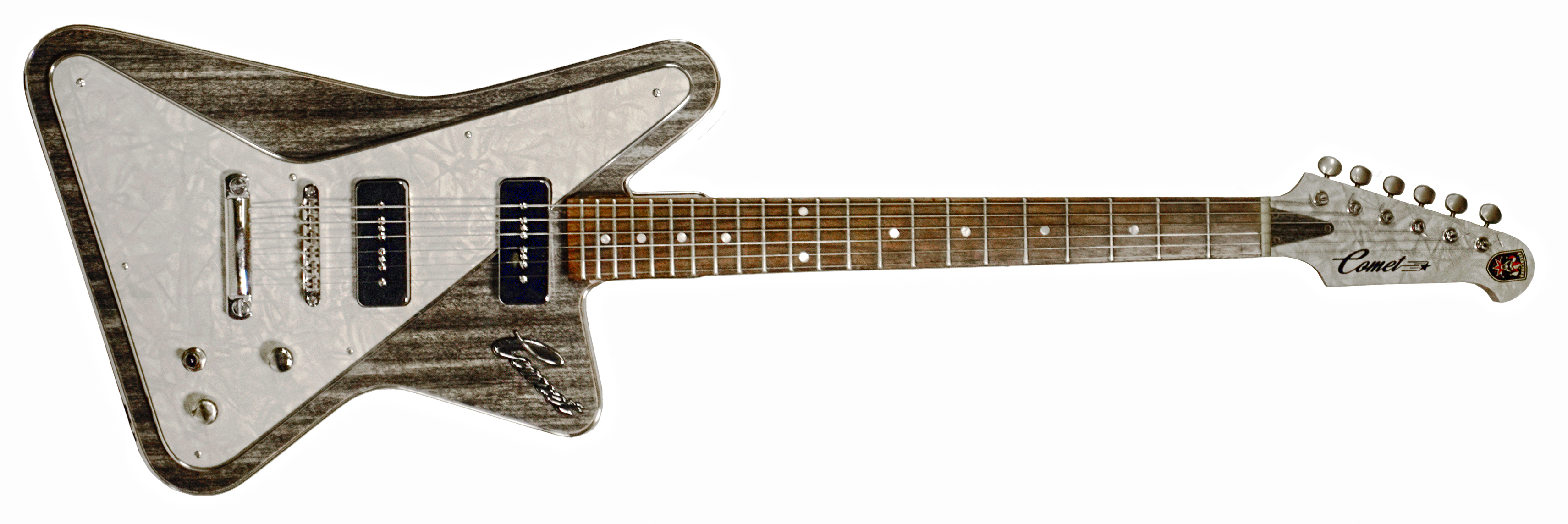
Even though the 22-fret maple neck with a rosewood fingerboard is bolted on, the overall feel of the guitar is very much like a Gibson Firebird or an SG. I say that despite the Fender-like 25.5-inch scale length, which is three-quarters of an inch longer than a Firebird's. Regardless, it plays great. The neck is narrow, with beautiful low action, and there is easy access to the upper frets for even the largest hands.
The pickups are P90s and sound warm, the way you’d expect them, but with plenty high-end and snap. They have a high output and can be punchy, but they're not as trebley as the average humbucker. The Comet does everything I’d want in clean and/or dirty tones.
As for electronics, there's nothing fancy here. The knobs are for global volume and tone, with a three-way pickup selector.
I paid $1,200 for the Comet. I consider that a steal, and whether or not it appreciates, it rules. In addition to sporting a fancy design, it's a meat-and-potatoes workhorse that can can handle an entire gig on its own. All that, plus that Mercury Comet emblem.
Get The Pick Newsletter
All the latest guitar news, interviews, lessons, reviews, deals and more, direct to your inbox!
My thanks to Jon Trickey for inviting me to his studio, which is by appointment only, but well worth the hour or so drive out of San Francisco into Gold Country.
Please visit jontrickey.com to see his artwork and other guitars, with more coming in 2025.
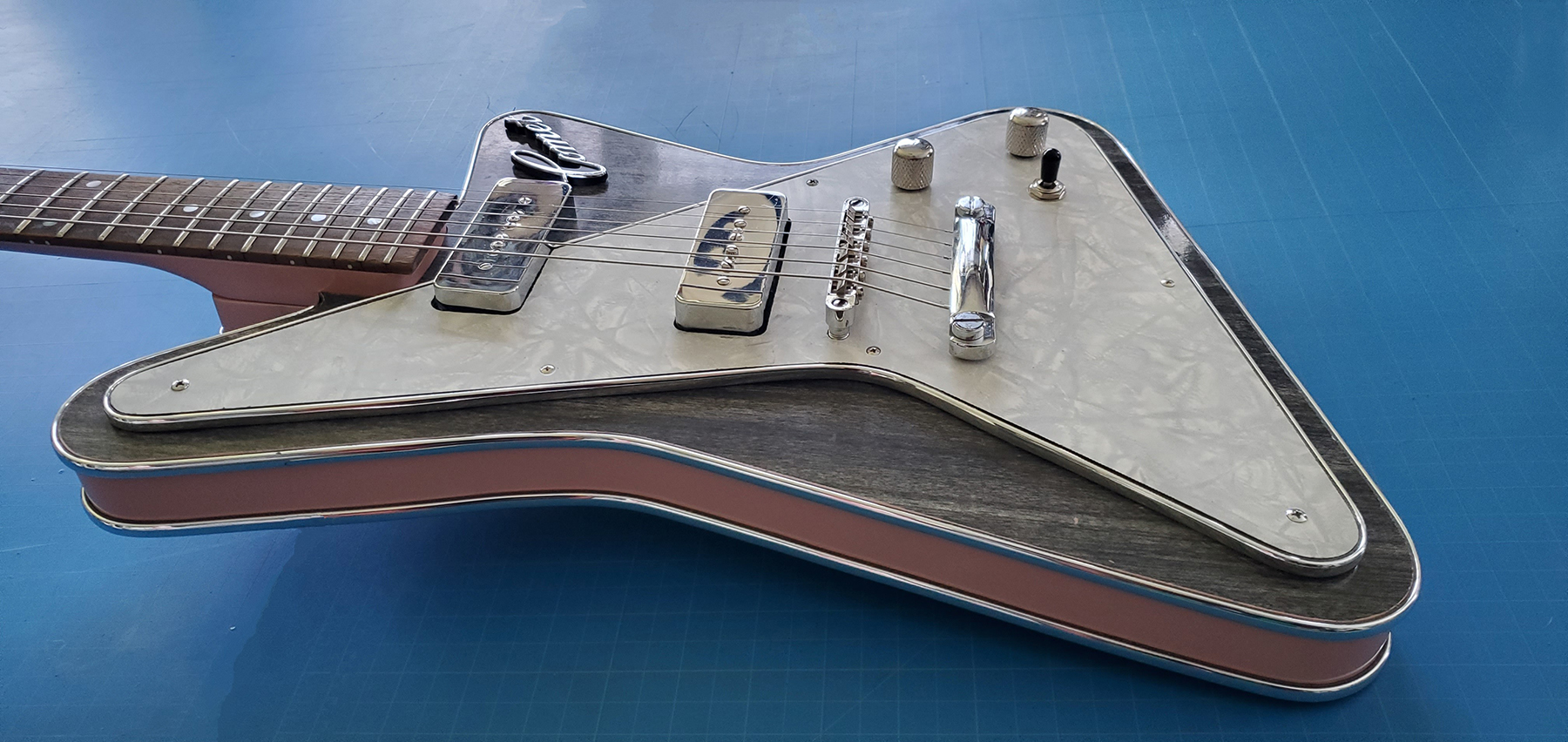
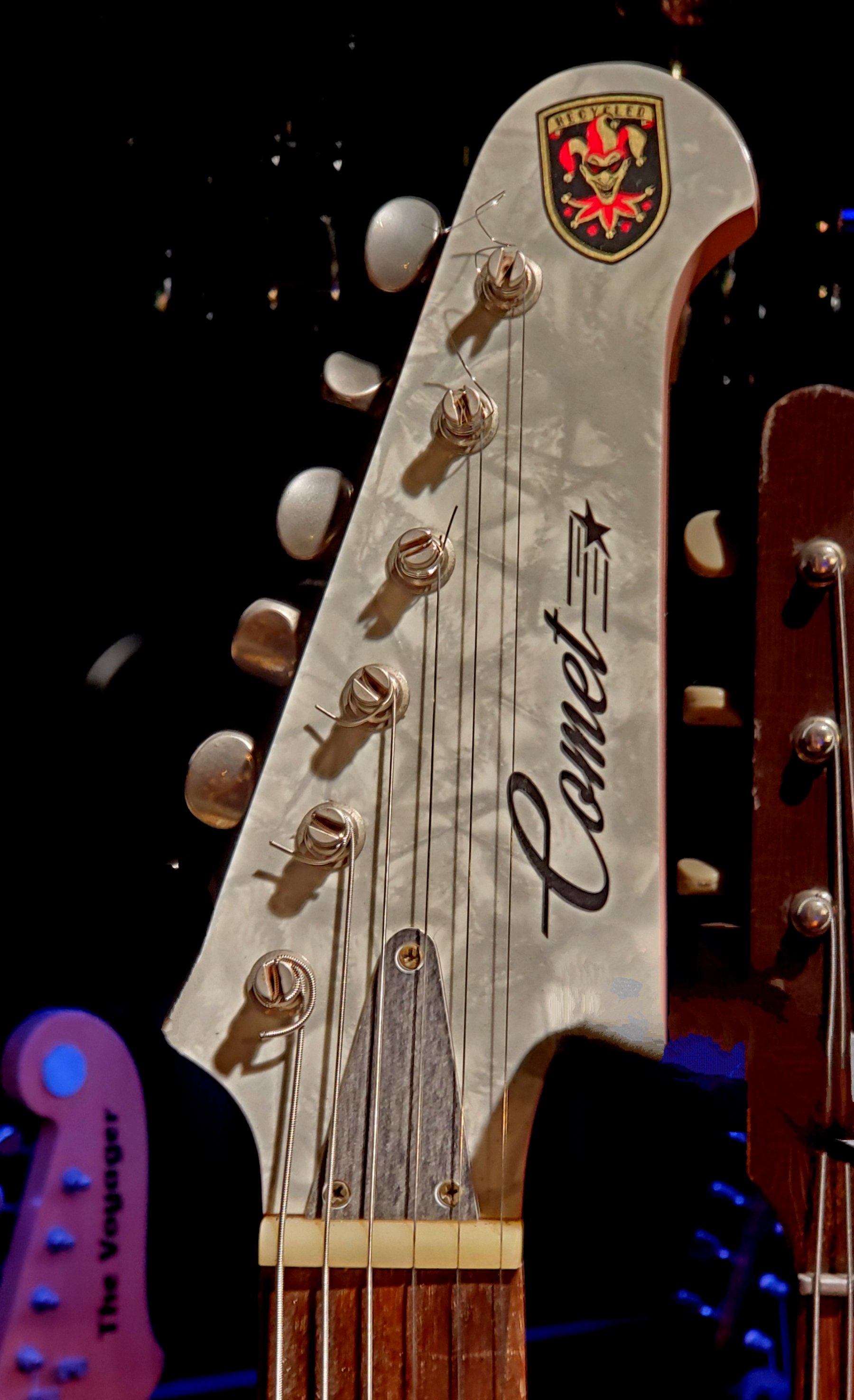
Got a whack job of your own? Contact me at rtcarleton@gmail.com. Who knows? Maybe I’ll feature it here.
And check out Terry Carleton's other guitars, including a rare 1964 Fasan, a 1970 Kimberly Deluxe and many more.
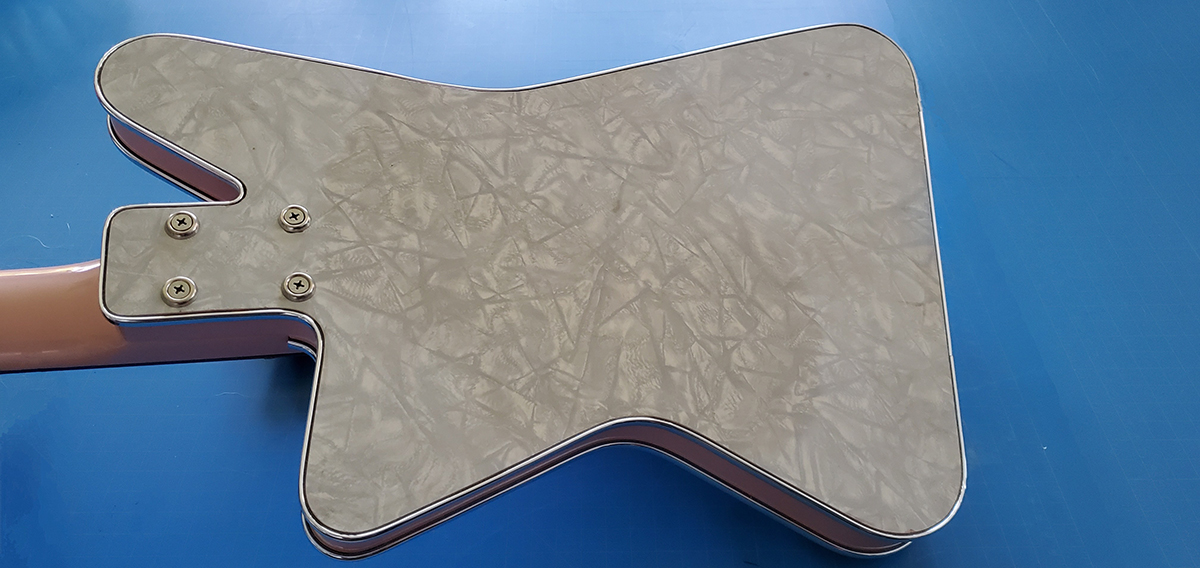
"We tried every guitar for weeks, and nothing would fit. And then, one day, we pulled this out." Mike Campbell on his "Red Dog" Telecaster, the guitar behind Tom Petty & the Heartbreakers' "Refugee" and the focus of two new Fender tribute models
“A good example of how, as artists, you have to blindly move forward with crazy ideas”: The story of Joe Satriani’s showstopping Crystal Planet Ibanez JS prototype – which has just sold for $10,000
